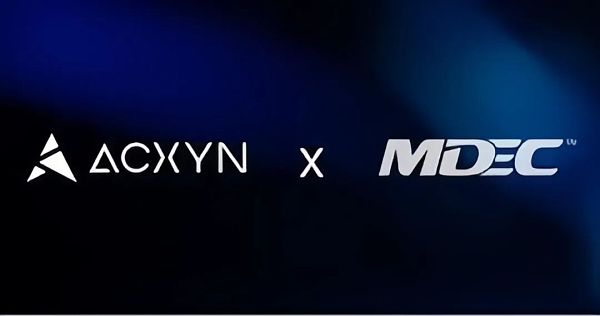Author: David Tng
The "Crypto Wealth Report" shows that global Crypto asset usage will see alarming growth in 2023.
Malaysia ranked 10th in the report, exceeding expectations for high-income countries such as Singapore and the United States. This achievement, especially in the “Technological Innovation” and “Economic Factors” indicators, not only highlights Malaysia’s growing crypto community but also solidifies its position as a strong contender as Southeast Asia’s crypto hub.
These findings demonstrate the multifaceted and pervasive impact of blockchain technology at all levels of the economy, from middle-income to mature economies. Malaysia is actively embracing blockchain technology as an innovative tool to overcome infrastructure challenges and catalyze solutions to real-world problems.
Led by a new wave of developers and entrepreneurs, the growth of Malaysia’s local Crypto community is not just a matter of technological advancement, it is a matter of the country leveraging advanced technology Such as the promise of blockchain to revitalize communities.
Finance through blockchain Tolerance
A significant proportion of the population in middle-income economies remains unbanked or underbanked compared to high-income countries.
In Malaysia, about 8% of the population does not have a bank account, while more than 55% of the population is underbanked. Despite these challenges, the country’s high 97.3% internet penetration provides a unique opportunity to achieve financial inclusion through blockchain technology.
Blockchain-powered financial services provide individuals with access to essential services such as banking, remittances, and microfinance. This progress is particularly important for closing the gap between people who have traditionally been outside the financial system.
The collaboration between Acxyn and MDEC is the best proof of this potential.

Acxyn is the world's first IP tokenization platform, revolutionizing the concept of asset ownership. By converting intellectual property into tradable digital assets, it enables individuals to invest in a variety of commodities such as digital art, gaming assets and software.
This innovation goes beyond asset tokenization and gives a wider range of people the opportunity to invest, as long as they have a smartphone and the Internet.
Such government-backed initiatives are critical to driving economic growth from the grassroots. Not only do they validate the transformative potential of blockchain technology, they also underscore the government’s commitment to promoting innovation, bringing these solutions to market and having a positive impact on communities.
Solve practical problems and provide solutions Solution
One of the most significant advantages of blockchain technology is its ability to solve real problems, which is particularly evident in strategic collaborations between government entities and emerging startup technology companies. These collaborations are critical to leveraging innovation and new technologies to create new opportunities within the economy.
A typical example is the latest cooperation between Quurk and MDEC.
Quurk is a gamified learning company and a pioneer in Web3's first open-world learning game, providing a unique platform where students can learn to code .
More than just an educational tool, this initiative leverages blockchain technology to make education more accessible and engaging. Young developers not only learn how to code, but also develop skills that are increasingly relevant to the times, preparing the next generation of leaders for the future.
Such public-private partnerships, especially within the blockchain ecosystem, are critical to upskilling the next generation. This plays a key role in improving access to education, thereby preparing young people for the future in a rapidly evolving digital world.

In addition, blockchain technology also has profound social impacts on creating jobs, attracting foreign investment, and community education. By providing educational opportunities and nurturing the next generation of entrepreneurs, these initiatives enable societies to reskill and level up to be competitive on the global stage.
Summary
In general, blockchain The integration of technology in developing countries such as Malaysia signals an era of change. This convergence is not just a trend but a powerful solution to real-world challenges.
By providing banking investment services, blockchain technology is closing the financial inclusion gap and democratizing financial opportunities for previously excluded populations, especially the unbanked. Accounts and underserved populations) play a vital role in economic empowerment.
In addition, blockchain can create new opportunities, stimulate investment, and cultivate a new generation of entrepreneurs. The commitment of local communities, combined with strategic partnership and support from government, is key to driving this change.
As middle-income societies begin to adopt blockchain technology, they will have the opportunity to be widely used and thrive. Such adoption is critical to bridging the development gap with wealthier Western countries, placing these societies at the forefront of the global innovation landscape.
Blockchain technology is not only a technological advancement for middle-income countries, but also represents the cornerstone of a more inclusive future, achieving equitable growth and shared prosperity. Pave the way.
 Weatherly
Weatherly








